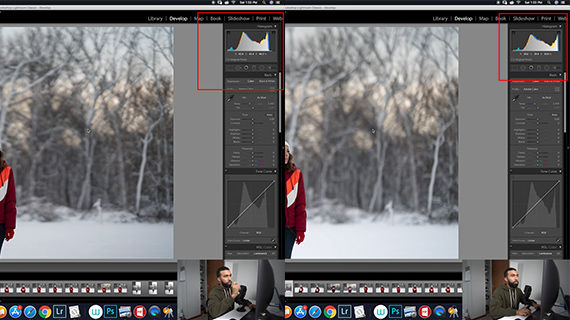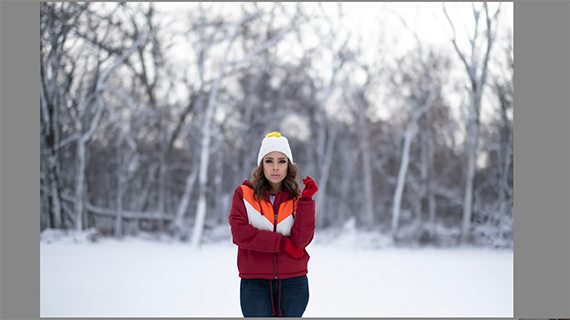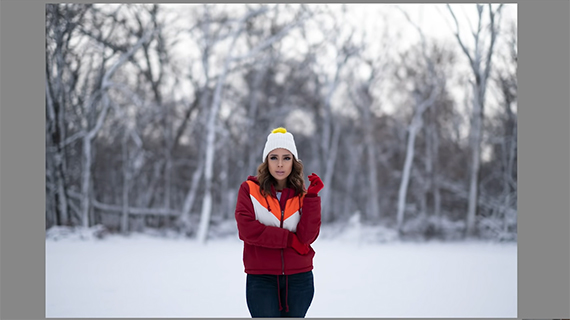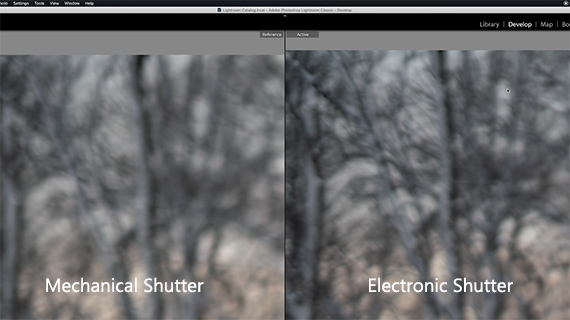Believe it or not the electronic shutter mechanism on your mirrorless camera can adversely affect the quality of bokeh (and exposure) of your photos, especially when shooting at above 1/1000 second. So much so that when using very wide apertures you’re not likely to get the same amount of exposure and quality of bokeh that you might expect out of your lens. Manny Ortiz elaborates:
Look at this comparison of two images both shot at f/1.4, one with the electronic shutter and the other with mechanical shutter.

Notice the histogram on both images. The one on the left shows that there is some loss of light when compared with the histogram on the image on the right. But how could this happen with the exact same exposure settings and the same camera and lens?
This is a clear indication that the electronic front curtain option is letting in less light. That means it must also be affecting the bokeh. The following comparison will make this clearer.
As you can see in the comparison above, the image shot with the mechanical shutter has creamier bokeh than the image shot with the electronic shutter (right).
But, this is not easily perceptible. If you’ve been shooting with a shutter speed of under 1/1000 second, then your images are unlikely to be affected. It’s only when the shutter speed increases to over 1/1000 second that this strange phenomenon starts to happen.
And the problem isn’t unique to one type of camera make or model. The above images were shot with a Sony mirrorless camera. The images below have been shot with a Fuji. The results are again pretty conclusive.

Mechanical Shutter

Electronic Shutter
Notice how the background changes, ever so subtly. The photo with the mechanical shutter is smoother and creamier. The electronic shutter pulls in less light.
So, this definitely isn’t an isolated incident with one particular camera. It may be something to keep in the back of your mind when shooting with the electronic shutter on a mirrorless camera.
Like This Article?
Don't Miss The Next One!
Join over 100,000 photographers of all experience levels who receive our free photography tips and articles to stay current:





> But, this is not easily perceptible. If you’ve been shooting with a shutter speed of under 1/1000 second,
> then your images are unlikely to be affected. It’s only when the shutter speed increases to over 1/1000
> second that this strange phenomenon starts to happen.
So you mean – pretty much always? 1:1000 and shorter is used very rarely,, in very sunny days only. In about all other conditions some bigger values are used, like 1:250, 1:100 or even longer.